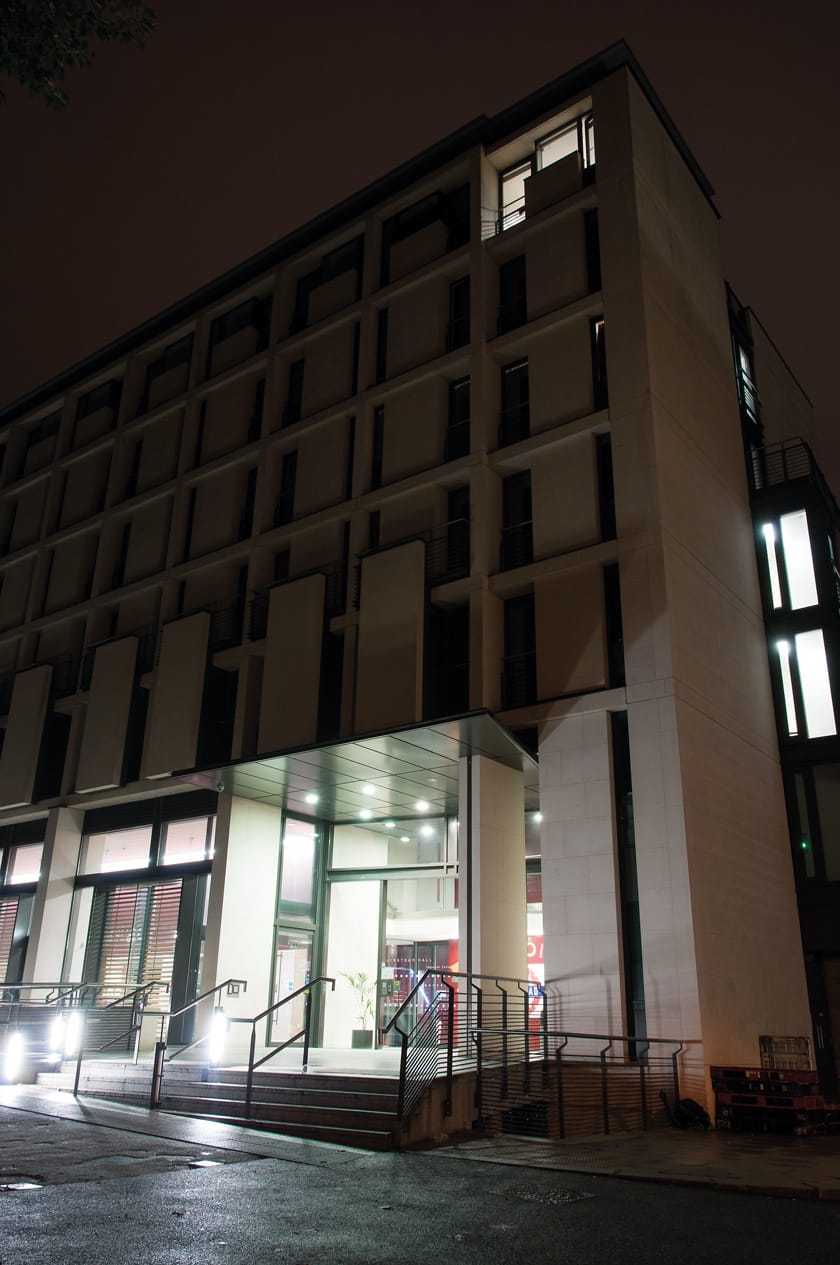Students left in the dark over cuts to amenities funds
Felix investigates as to why the funds for halls have been slashed

College has slashed the Amenity funds for Halls of Residence by a quarter of a million– a move that has sparked fury amongst Hall Seniors and Wardens throughout the first few weeks of term.
The amount allocated to all halls this year was just over £150,000, down from approximately £373,000 in previous years. From this £150,000, around £42,000 has come from the Education Office, whilst the rest has been derived from the rents students are paying to live in halls, to the tune of £1 per week per student.
The reasoning behind the cuts was to “put money back into the pockets of students,” and that rent prices will not have risen too highly as a result. However, at time of print, the exact rent figures had still not been released to _Felix _so we cannot verify if this is the case. It has been suggested by those affected that the money has gone “back into the pockets of commercial services,” although this is not certain.
The cuts have lead to a reduction of £220,000 in the funds available to all halls to cover for events and pastoral care provisions.
The decrease in Amenities Funds has resulted in a knock on effect for both the Freshers’ Events and the provisions for hall seniors, who moved in a week before the new intake in September. There was less funding available for hall senior training, nor was there allegedly enough money available for welfare provisions that were usually paid for using the fund.
Hall seniors have also come forward to say that because events can no longer be as heavily subsidised, ticket prices have to increase as a result and may deter students with less disposable income in getting involved.
Said one subwarden, “Essentially a 50% cut in your budget has exactly the effect you'd imagine. Either we half the number of your events or reduce the quality of them.
“This Freshers’ fortnight we've had to strike a balance between the two; we’ve reduced the budgets for party nights and had to host more 'film nights' in the common room to replace events we can no longer afford to run.”
Said another hall senior: “We've managed to keep our calendar for fresher’s fortnight intact but it will come with a reduction in future events; nights like Halloween are highly unlikely to have parties now.
It is not just events that are suffering from the cuts. One hall senior told us how they usually could afford to produce and print a help manual for students using the funds, but this had to be cut because of the lack of funds. “It is the freshers’ that are missing out.”
One Assistant Warden told us, “We have had to cut back events such as trips to London Eye or London Tours. Such trips are more expensive, but aren’t alcohol related so aren’t particularly exclusionary. Not all events halls do are actually about alcohol, although it seems that College has this impression that alcohol is all that halls spend their money on.
“These cuts mean not being able to put on the events we usually provide, which arguably detracts from the student experience.
“Campus services should not exist to make money out of students.”
The Warden Discretionary Fund has also been cut down to £200 per hall. This cost was previously used for pastoral costs, such as “welfare cards”, that provide essential welfare contacts on them and before now were given to all students. This year the College no longer supplied these, so the Warden Discretionary fund had to be used to pay for these instead in some halls.
Hall senior motivation has also dropped as a result. Said one source, “There were no funding for team building and training during the week before the students moved in, and it has lead to a drop in morale. The litmus test will be to see who still wants to be a hall senior next year.”
In some halls, wardens themselves have been known to cover the costs of such provisions, although this is beyond their remit and responsibility.
The decision to cut the funding was made as a response to the Residential Experience Review, undertaken earlier this year. The Review, conducted by senior members of staff in College, along with the then Union President David Goldsmith and Deputy President (Welfare) Marissa Lewis, also scrutinised the wardening system, residential staffing and the College services.
The Residential Experience Review then produced recommendations for changes, which were then discussed with various other college staff members and the sabbatical team.
Recommendations for the fund included that it be reduced to a flat rate of £1 per student per week, and that “It should not be used to subsidise high cost trips or events, but should focus on activities that … should include a high proportion of activities without alcohol.” The then Union President David Goldsmith and Deputy President (Welfare) appealed for this to be increased to £1.50.
However, this reduction has still resulted in halls having half as much money to use for events than before.
The Amenities fund was in previous years taken from the rent paid by students, and the hall determined this amount taken from the rent they lived in and the type of room they had.
However, even senior college sources we unable to pinpoint exactly how money was allocated per hall before now. Said Debra Humphris, Vice Provost (Education), “Knowledge of how the funds worked had been lost at some point.”
It was because of this uncertainty that the decision was made to put the cost of the fund at a flat rate of £1.50 per person per week, in a bid to aid transparency.
The reduction in funds has been coupled with some benefits. Financial control of the funds has been transferred to elected hall committees, who are able to claim back VAT on any expenditure. The financial system that the Union runs, eActivities, has also been heralded as easier to use compared to the previous college-based system amenities funds were managed within.
The Union’s Deputy President (Welfare) Chris Kaye said, “Reviewing this is a top priority and the union looks forward to working constructively with College on this issue.”
From Debra Humphris, Vice Provost (Education):
In 2013 College set up a review of the residential experience, that involved a Independent panel of staff and also included David Goldsmith, the Union President of the time, and Marissa Lewis, the Deputy President (Welfare). This was to look at the issues around the residential experience, including evaluating the amenities funds.
As part of the Residential Experience the panel were keen to make the way the funding worked was more transparent. The fund should be uniform per student, so students know how much they spend and what it is spent on for hall activities.
The move of amenities funds from college to the union is rather positive: hall committees now control the money and the funds, with the support of the Hall Warden. Whilst the funds are collected by the College, they are transferred straight into a pot that the union then distributes across halls. Students are involved in the decision making when spending the money_._
The motivation was to leave money in student’s pockets, and we are always mindful of students who have a household with an income of less than £20,000 and for whom coming to a university in the most expensive area of the country is a challenge.
The panel originally decided that a flat figure of £1.00 per student per week would be acceptable, but Marissa Lewis and David Goldsmith said around £1.50 would be better.
Given that the accommodation costs had already been published Provost’s Board accepted this change and agreed that the funds to make up the difference, £42,500 would be found from the Education Office as a one off. There will now be a review in January each year involving students, the Union and the College to define what fund should be the following year.
Hall committees now have full control of the money and they need to ensure that they use the money for events that appeal to as many residents as possible. Working with the wardens the Hall Committees manage their funds across the year. Given that much of the fund is used on the Welcome week it would be really helpful if hall committees could help shape the welcome for the next intake. Using the Unions online services to manage the fund, this provides greater transparency, so far this appears to have been positively received.
Another outcome of the review was the encouragement of greater transparency about rents and work on this is being taken forward the Chief Financial Officer and Vice Provost Education. Rent increases year on year are influenced by inflation and costs including bills for energy, cleaning, depreciation. Before now, there was no student input in the rent costs, we want to change this.










